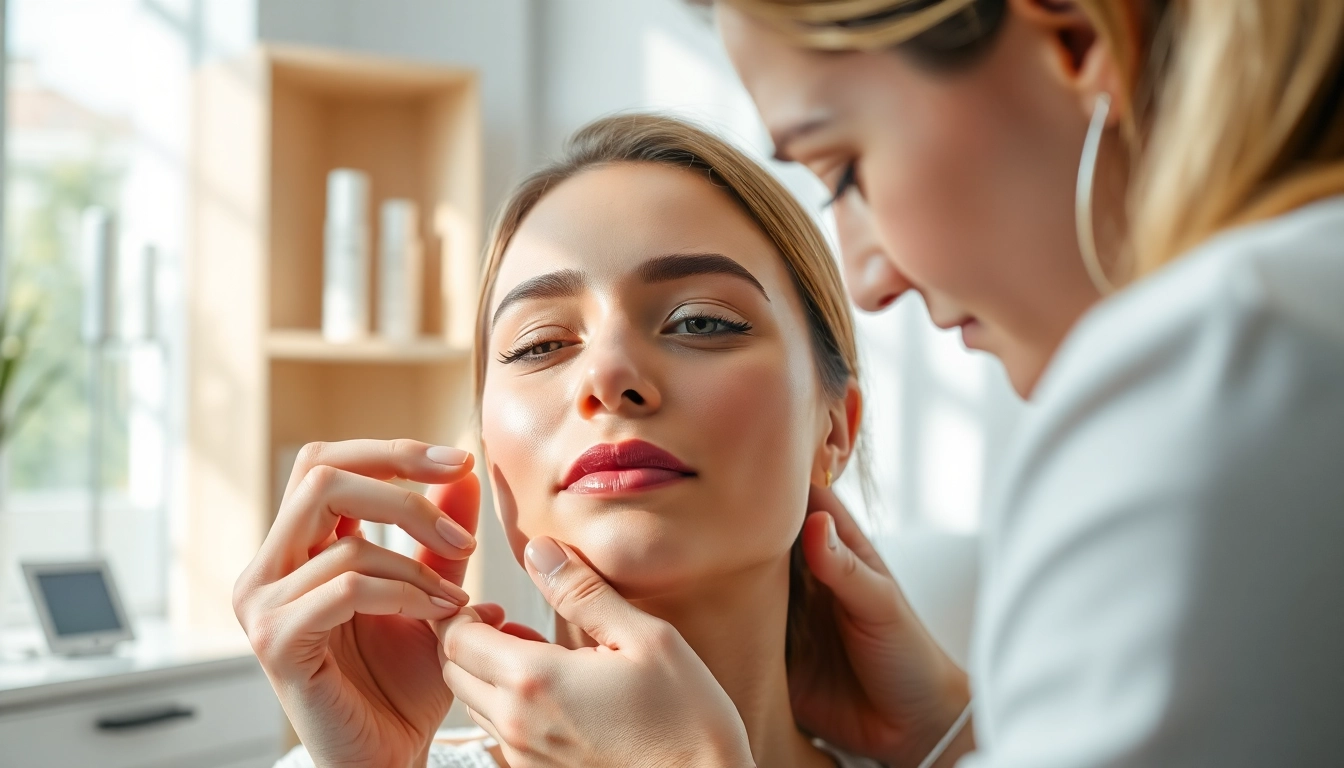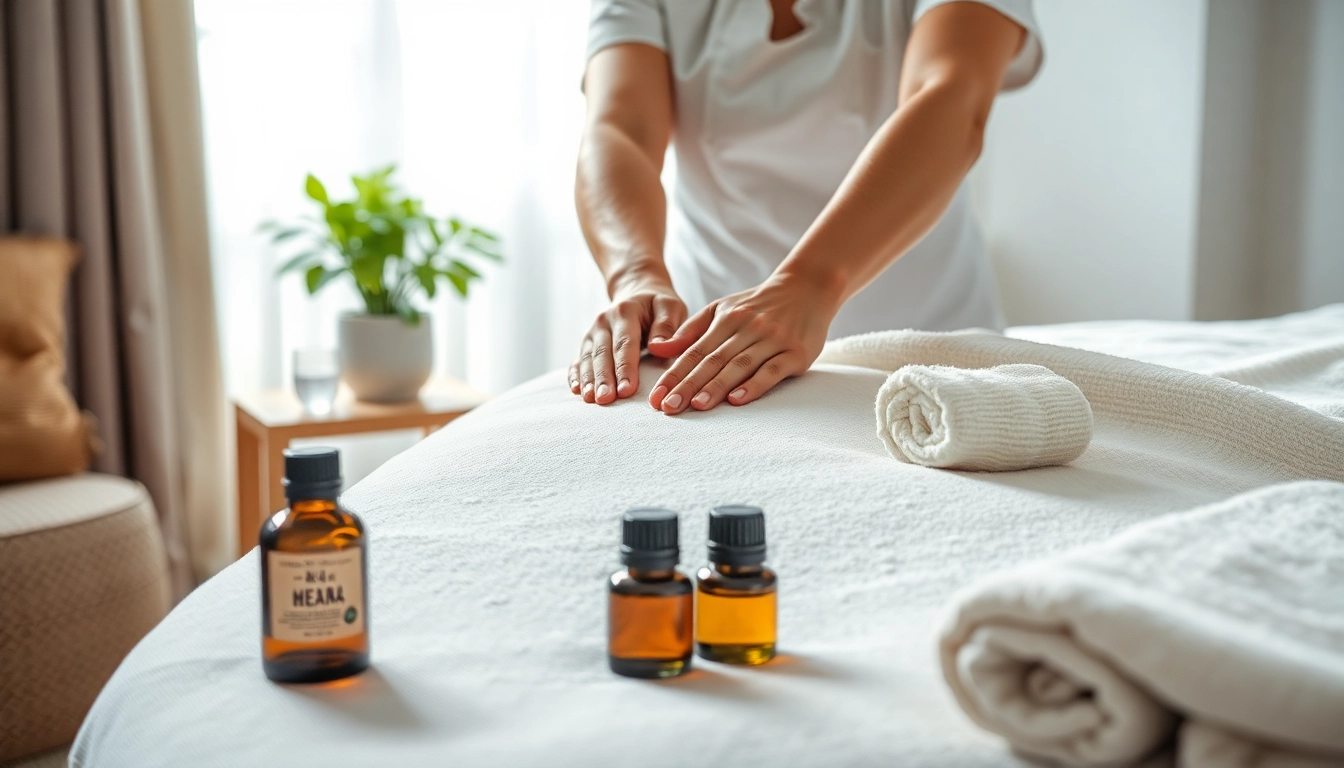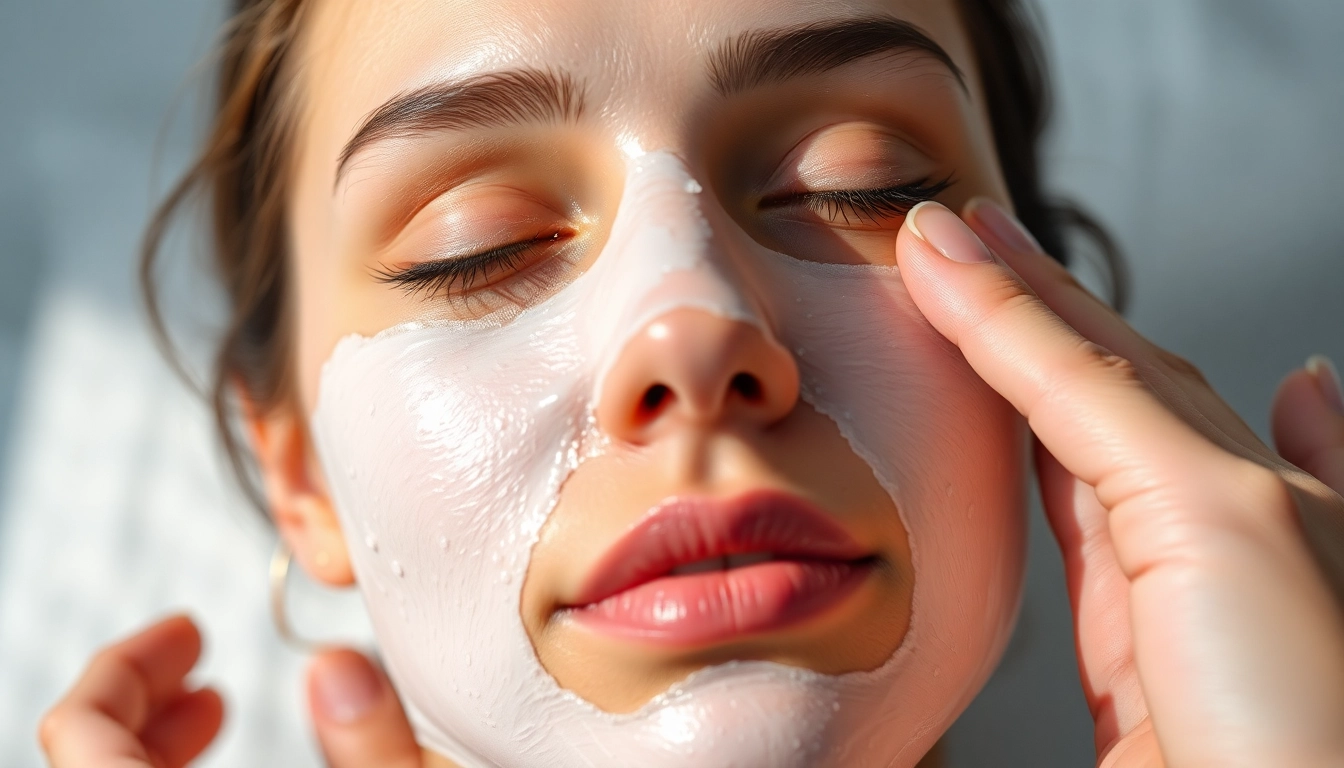Understanding Anti Age: What It Is and Why It Matters
Aging is a natural and inevitable process that affects every individual, often leading to visible changes in the skin’s texture, appearance, and overall health. The quest for a youthful appearance has driven the popularity of anti age treatments and strategies. Understanding how aging occurs, the science behind it, and the most effective methods for combating its effects is essential for anyone seeking to maintain their skin’s vitality over time. This article delves deep into the myriad aspects of anti age, unraveling the complexities of skin aging and equipping readers with actionable insights to achieve and maintain youthful skin.
The Science Behind Aging and Skin Health
Aging in skin is primarily a result of intrinsic (natural) and extrinsic (environmental) factors. Intrinsic aging is influenced by genetic predisposition, biological processes, and the natural decline of cellular functions over time. As we age, collagen and elastin production decreases, leading to diminished skin elasticity and firmness. Additionally, the skin’s ability to retain moisture diminishes, resulting in dryness and increased visibility of fine lines and wrinkles.
Extrinsic aging, on the other hand, largely results from external factors such as sun exposure, pollution, smoking, and poor diet. UV radiation, for example, accelerates the breakdown of collagen fibers and leads to photoaging, a condition characterized by wrinkles, sagging, and age spots. Understanding these mechanisms is crucial in formulating effective anti age strategies.
Common Misconceptions About Anti Age Treatments
Despite the wealth of information available, several misconceptions about anti age treatments persist. One of the most common myths is that these treatments are exclusively for older individuals. In reality, it’s beneficial to start anti aging routines in one’s 20s and 30s, as preventing damage is often more effective than reversing it. Another misconception is that expensive products are always better. While quality ingredients can make a difference, many affordable options can provide significant benefits.
Moreover, another myth is that surgical interventions are the only means of achieving effective results. Non-invasive treatments, skincare routines, and lifestyle choices can also play a pivotal role in maintaining youthful skin. Educating oneself on these misconceptions can empower individuals to make informed choices about their skin health.
Long-Term Benefits of Embracing Anti Age Strategies
Implementing anti age strategies early can yield long-term benefits beyond skin appearance. These practices can enhance self-esteem, improve overall skin health, and contribute to a holistic sense of well-being. For instance, a dedicated skincare regimen that includes sun protection, hydration, and active ingredients can significantly delay the visible signs of aging. Furthermore, addressing skin health can also promote psychological wellness, as individuals often feel more confident and resilient when they take charge of their skin’s health.
Additionally, some anti aging strategies such as maintaining a balanced diet and regular exercise can lead to improved cardiovascular health and overall vitality, showcasing the interconnectedness of skin health and general well-being.
Identifying Key Factors in Aging Skin
The Role of Genetics in Skin Aging
Genetics play a fundamental role in the aging process. Familial patterns often dictate how and when individuals experience the visible signs of aging. For instance, people predisposed to skin conditions such as dryness or pigmentation issues may also notice faster aging signs. Learning about one’s genetic background can help in tailoring specific anti age strategies that align with individual needs.
Moreover, certain genetic aspects influence skin types and resilience, which can significantly affect how the skin responds to certain treatments. Understanding family history regarding skin issues can also assist in proactive measures, such as regular dermatological assessments and personalized care plans.
How Lifestyle Choices Influence Aging
Lifestyle choices are pivotal in determining the skin’s aging process. Factors such as diet, hydration, sleep, and stress management play a crucial role in skin health. A diet rich in antioxidants, vitamins, and healthy fats can promote skin regeneration and provide essential nutrients that support elasticity and hydration. Foods such as berries, avocados, nuts, and green leafy vegetables have demonstrated properties that combat oxidative stress and inflammation, key contributors to skin aging.
Moreover, hydration is equally important. Chronic dehydration can lead to dullness and increased visibility of fine lines. Thus, ensuring adequate water intake supports the skin’s plumpness and overall health.
Furthermore, quality sleep is another vital component. The skin undergoes critical repair processes during sleep; inadequate rest can lead to increased stress hormones that accelerate aging. Managing stress through practices such as yoga, meditation, and mindfulness is essential in preventing premature aging and maintaining a vibrant complexion.
Environmental Impact on Skin Aging
The environment plays an undeniable role in skin aging. Factors like sun exposure, pollution, and climate can significantly affect skin health. UV radiation is widely recognized as a primary contributor to skin damage and photoaging. Protective measures such as using broad-spectrum sunscreen daily can prevent sun-induced skin changes.
Pollution, too, has been shown to generate free radicals that can damage skin cells and accelerate aging. This may result in a dull complexion, breakouts, or premature wrinkles. Implementing a cleansing routine that effectively removes pollutants and using antioxidant-rich products can help mitigate these effects.
Lastly, varying climates also affect skin hydration levels and overall health. For instance, dry climates may exacerbate the appearance of fine lines, necessitating a more robust moisturizing routine, whereas humid climates may necessitate lighter products and regular exfoliation. Tailoring skincare regimens to address these environmental influences forms a crucial aspect of effective anti aging strategies.
Effective Anti Age Products and Ingredients
Top Ingredients to Look for in Anti Age Skincare
Choosing the right products is critical in achieving effective anti aging results. The ingredient list often holds the key to a product’s efficacy. Some of the most renowned ingredients include:
- Retinoids: Vitamin A derivatives that significantly boost collagen production and cell turnover, effectively reducing the appearance of fine lines and improving skin texture.
- Peptides: Amino acids that support skin structure, enhance texture, and promote moisture retention, making them essential for combating aging signs.
- Hyaluronic Acid: A powerful humectant that attracts moisture, keeping the skin hydrated, plump, and supple.
- Antioxidants: Ingredients like Vitamin C, green tea extract, and coenzyme Q10 help combat oxidative stress caused by free radicals.
- Alpha-Hydroxy Acids (AHAs): These exfoliants promote cell turnover and improve skin texture and tone while reducing the appearance of wrinkles.
Incorporating these ingredients into a skincare routine can vastly improve the skin’s appearance and longevity.
Best Practices for Using Anti Age Products
While selecting the right products is important, knowing how to use them effectively is equally crucial. The following practices can enhance the effectiveness of anti age products:
- Layering: Apply products in order of consistency, starting from thinnest (like serums) to thickest (like creams).
- Patch Testing: Always perform a patch test on a small skin area before fully integrating new products to prevent adverse reactions.
- Sun Protection: Always use sunscreen when using active ingredients like retinoids and AHAs as they can increase sun sensitivity.
- Frequency: Begin using new products gradually, allowing the skin to adjust, especially with potent actives like retinoids.
Following these best practices can help maximize the benefits of anti age products and achieve desirable results over time.
Understanding Product Labels: What to Avoid
Not all products marketed as “anti aging” live up to the claims on their labels. When selecting skincare, it is essential to be vigilant about certain ingredients that may be harmful or ineffective. Ingredients such as alcohols, parabens, and synthetic fragrances can irritate the skin or cause adverse reactions.
Furthermore, understanding the concentration of active ingredients is vital; many products may not contain sufficient quantities for any noticeable effect. Always look for products backed by research, ideally with clinical studies supporting their claims.
Empowering oneself with knowledge about what to avoid can significantly enhance the chances of selecting effective products that promote youthful skin.
Complementary Anti Age Treatments
Professional Treatments vs. At-Home Solutions
While a solid skincare routine is foundational for anti aging, additional treatments can enhance results. Professional treatments, such as chemical peels, microdermabrasion, and laser therapies, can target specific concerns with precision. These options often provide quicker and often more dramatic results than over-the-counter solutions.
Conversely, at-home treatments like sheet masks, facial oils, or LED light therapies can also play a pivotal role in a comprehensive skincare regime. They offer convenience and affordability, allowing individuals to maintain their anti age efforts without regular visits to a clinic.
Balancing between professional and at-home solutions can maximize benefits and cater to individual preferences and budgets.
Popular Anti Age Procedures: Pros and Cons
Several popular procedures offer anti aging benefits; however, understanding their pros and cons is essential before opting for any treatment:
- Botox: Effective for reducing expression lines; however, results are temporary and require maintenance treatments.
- Dermal Fillers: Provide immediate volume and lift; potential side effects include swelling or bruising, and results are not permanent.
- Laser Resurfacing: Treats wrinkles and skin texture; can have a longer recovery time but delivers significant improvements.
- Microdermabrasion: Non-invasive; it can improve skin texture but might require multiple sessions for more significant results.
Weighing these factors can help individuals select the procedures that best align with their goals, preferences, and tolerance for cosmetic interventions.
Integrating Treatment Plans for Maximum Impact
For optimal anti aging results, integrating various treatment plans is vital. By combining professional treatments and effective at-home skincare routines, individuals can create personalized strategies that address their unique skin concerns.
For instance, someone receiving laser treatments may benefit from using gentle, nourishing products that promote healing post-procedure. Following a consistent routine while accommodating in-office visits will enhance the efficacy of both efforts.
Furthermore, collaborating with a dermatologist or licensed skincare professional can help develop an integrated approach that considers individual skin types, goals, and timelines, resulting in comprehensive anti aging regimes that deliver lasting impact.
Tracking Progress and Measuring Results
Setting Realistic Goals for Anti Age Journeys
Embarking on an anti age journey necessitates setting realistic goals. Unrealistic expectations can lead to disappointment and frustration. Establishing measurable, attainable goals, such as reducing the appearance of fine lines over a specific timeframe or improving overall skin texture, allows individuals to maintain focus and motivation.
Furthermore, maintaining a journal to document progress can aid individuals in understanding what strategies produce results and adjust practices accordingly if needed. This approach encourages a more mindful practice of self-care and helps individuals appreciate the gradual changes in their skin’s health.
Monitoring Skin Changes Over Time
Regularly assessing skin health can help track progress and identify what works best. Taking photos at consistent intervals can provide visual evidence of improvements or areas of concern. Additionally, noting changes in skin texture, hydration, and elasticity can guide future decisions regarding products or treatments.
Keeping records of any reactions or irritations from products can help in refining future selections, ensuring that the skincare routine evolves with individual needs.
When to Consult Professionals for Anti Age Guidance
While self-guided anti aging efforts can be effective, consulting professionals is advisable when experiencing significant skin changes or when unsure about specific products or treatments. A dermatologist can provide personalized recommendations, conduct assessments that factor in genetic background and environmental influences, and suggest treatments suited for individual skin goals.
Moreover, seeking expert advice can help in navigating the plethora of products available in the market, thereby avoiding common pitfalls and ensuring a more focused and effective anti age strategy.



